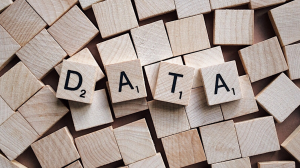New threat: AI technology is learning to 'listen' and steal your passwords and data
Artificial intelligence (AI) is becoming increasingly sophisticated, and this is also posing serious threats to information security. According to a new study by researchers at Cornell University (USA), hackers can use AI to steal user data with just a single keystroke.
Researchers have developed an AI algorithm that can analyze users' keystroke patterns to identify passwords and other sensitive data. This algorithm has up to 95% accuracy, even when users try to hide their keystrokes.
The results of this study show that users need to increase their security awareness and use stronger security measures to protect their personal data.
How does AI eavesdrop on the keyboard?
Researchers at Cornell University (USA) have discovered a new security threat: hackers can use artificial intelligence (AI) to steal user data with just a tap. keys.
To do this, hackers can install malware on the victim's device with a microphone, such as a laptop or smartphone. The malware collects data from the victim's keystrokes and feeds them to an AI model.
This AI model will use the device's microphone to listen and repeat those keystrokes. In this way, hackers can obtain the victim's passwords, credit card numbers and other sensitive personal information.
Researchers tested one such AI model and found up to 95% accuracy. This model can analyze users' keystroke patterns to identify passwords and other sensitive data.
Steps to stay safe
1. Use a password manager. A password manager will generate and store strong and unique passwords for all your accounts. This eliminates the need to remember multiple passwords and reduces the possibility of AI detecting or predicting keystrokes.
2.Install good anti-virus software on all your devices. Antivirus software will help you protect your device from malware that could install software that records your keystrokes.
3. Be careful when using public Wi-Fi. Public Wi-Fi is often not as secure as home or business Wi-Fi. When using public Wi-Fi, you should avoid accessing sensitive websites or applications, such as bank accounts or email.










